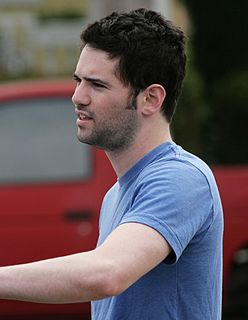A Quote by Russell Crowe
My bottom line is that I think Ridley Scott is one of the greatest visual artists of our time and I feel very privileged that he wants to work with me, so I go with that flow.
Related Quotes
I'm quite curious and excited about seeing a new script for 'Blade Runner.' If, in fact, the opportunity would exist to do another, if it's a good script, I would be very anxious to work with Ridley Scott again; he's a very talented and passionate filmmaker. And I think it would be very interesting to revisit the character.
An eye-opening moment in my life, a very defining moment, was the first time I met Susan Sarandon [before shooting Thelma & Louise]. We were going to meet, just Ridley [Scott] and Susan and I, to go through the script and see if we had any thoughts or ideas. I was reading the script, and in the most girly way possible, meaning that if it was a line that could change or something different I'd like to see, I would think about each one and say, "Well, this one can wait till the set because I don't want to bring up too many things."
We need an honest bottom line. Today that bottom line is vastly subsidized. If anyone of us were paying the full cost of oil our bottom lines would be very different. If you internalize the cost of oil, look at the cost of the war in the Middle East or the cost of global warming for future generations, if you internalize those external costs and what you pay, that bottom line would look very different, what ever business you are in.


































